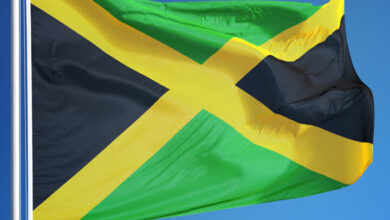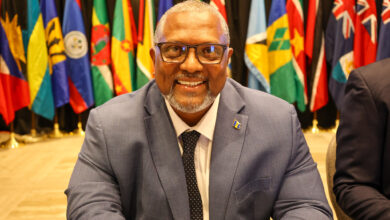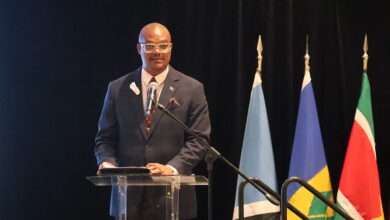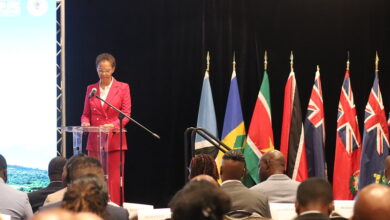(CARICOM Secretariat, Turkeyen, Greater Georgetown, Guyana) On behalf of the Food and Agriculture Organization of the United Nations, I bring greetings from our Director General, Dr. Jose Graziano Da Silva and our Regional Representative, Mr. Raul Benitez.
It is a distinct pleasure to be here at the Opening of the 13th Caribbean Week of Agriculture. This year’s theme – “Transforming Caribbean Agriculture through Family Farming” – is in keeping with the United Nations declaration of 2014 as the International Year of Family Farming (IYFF). It recognizes the important role that family farmers play in eradicating hunger and conserving natural resources, which are central elements of the sustainable future we want.
Ladies and gentlemen, nearly 80% of the food supply in developing and developed countries is produced by an estimated 500 million family farms. The scale of this contribution is mirrored in Latin America and the Caribbean, where family farming accounts for more than 80% of agricultural production and generates more than 50% of agricultural employment. In addition to being a major supplier of traditional food which contributes to healthy, balanced diets, family farming provides employment opportunities, preserves and enhances the culture, skills and traditions of local communities and contributes to the conservation of plant and animal species. For FAO, family farming is understood to include crop, livestock, forestry, fishery and aquaculture producers. These producers are largely smallholders and medium-scale farmers, peasants, indigenous peoples, traditional communities, fisher folk, pastoralists, collectors and many others. In the Caribbean, family farming has a vital role to play in addressing the two major challenges that almost all our countries face – agricultural revitalization and the food import bill.
Over the past two days, we have participated in some enlightening Seminars and Workshops on number of issues which impact on Family Farming – Policy and Strategies, Value Chains and Climate Change. Tomorrow afternoon at 2 pm, we have a very important Seminar to learn more about Haitian food and agriculture systems and linkages with CARICOM. I invite you all to participate in this Seminar.
Ladies and Gentlemen, what has been emphasized over the past two days is that the Caribbean needs to come up with its own definition of what is a family farmer
– because the range of circumstances under which family farms in the region operate, is diverse. This is necessary so that we can develop targeted policies, directed at specific family farms. This includes technologies to enhance the productivity of family farmers tailored to their specific circumstances, taking into account the people and the environment. We must also promote, enhance and expand their current sustainable practices and ensure that they not only feed their families but feed the rest of country and region, so that we rely less on imported foods. Also, we must ensure that these families realize improved livelihoods. Family farmers are among the poorest households in our countries.
FAO has been working globally and nationally on these issues, to build the coalitions which can provide this support. In collaboration with the World Rural Forum (WRF), the International Cooperative Alliance (ICA) and the World Farmers’ Organization (WFO), we held the first Regional Dialogue on Family Farming in Latin America and the Caribbean in Santiago, Chile, on 30-31 October, 2013. The objective of the forum was to improve the understanding of the role of family farming in each country and sub-region, as well as to define the main regional issues that should be addressed during the IYFF.
The Caribbean farmers who attended that meeting in Santiago reported that the challenges faced by family farms across the region are very similar. In particular, they cited four critical areas: (a) lack of an institutional framework designed to guide the development of family farming (b) lack of appreciation and undervaluing of the contribution of family farming by society and government (c) weak and uncoordinated economic, technological, social and environmental policies supporting family farm development and (d) lack of public policies to encourage youth and women to remain and work in rural areas.
At the regional and national levels, we are currently working with our partners in government, in the private sector, regional organizations, academia and civil society to address these issues through the promotion of agricultural development for food and nutrition security among Family Farmers. In Jamaica, family farmers were supported in the development of small scale irrigation systems and the introduction of small scale machinery pools and trained in organic farming. The genetic stock of small ruminants was improved as well as family farmers’ husbandry practices. The Zero Hunger Challenge, which was launched in Antigua and Barbuda at CWA 2012 and now includes activities in Grenada and St Vincent and the Grenadines is another example of FAO’s assistance to family farmers; where we are helping family farmers to improve their production techniques as well as their livelihoods.
Although we have made significant strides, there is much more work to be done to improve the lot of family farmers in the Caribbean. We stand committed to supporting CARICOM and national efforts through developing the detailed analysis to inform the identification and evaluation of policy options, trade policy assessments, vulnerability and resilience analysis, and developing measures to improve agricultural productivity and sustainability, including the design of effective social protection systems. We further recognize that we cannot do this this work alone, we are therefore committed to continue collaborating with our developmental partners – CARDI, IICA, CTA, CaFaN, CABA, 5Cs; CARICOM, with governments, civil society, private sector and academia to support family farmers in the region.
We wish to thank the Government of Suriname for agreeing to host this year’s CWA and we recognize and salute your tireless efforts as well as the work of the Alliance and the CARICOM Secretariat, who were involved in organizing this event. We join our partners in wishing everyone a successful Caribbean Week of Agriculture 2014.





